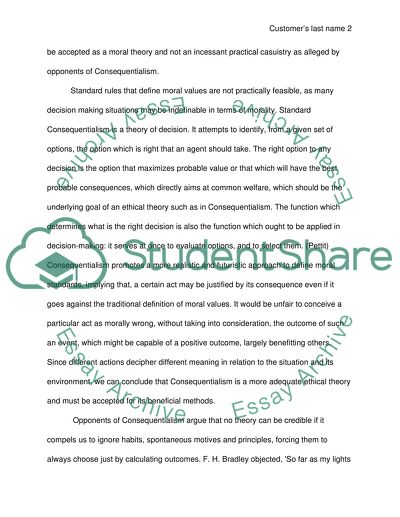Cite this document
(“Consequentialism Essay Example | Topics and Well Written Essays - 1000 words”, n.d.)
Retrieved from https://studentshare.org/miscellaneous/1563601-consequentialism
Retrieved from https://studentshare.org/miscellaneous/1563601-consequentialism
(Consequentialism Essay Example | Topics and Well Written Essays - 1000 Words)
https://studentshare.org/miscellaneous/1563601-consequentialism.
https://studentshare.org/miscellaneous/1563601-consequentialism.
“Consequentialism Essay Example | Topics and Well Written Essays - 1000 Words”, n.d. https://studentshare.org/miscellaneous/1563601-consequentialism.


